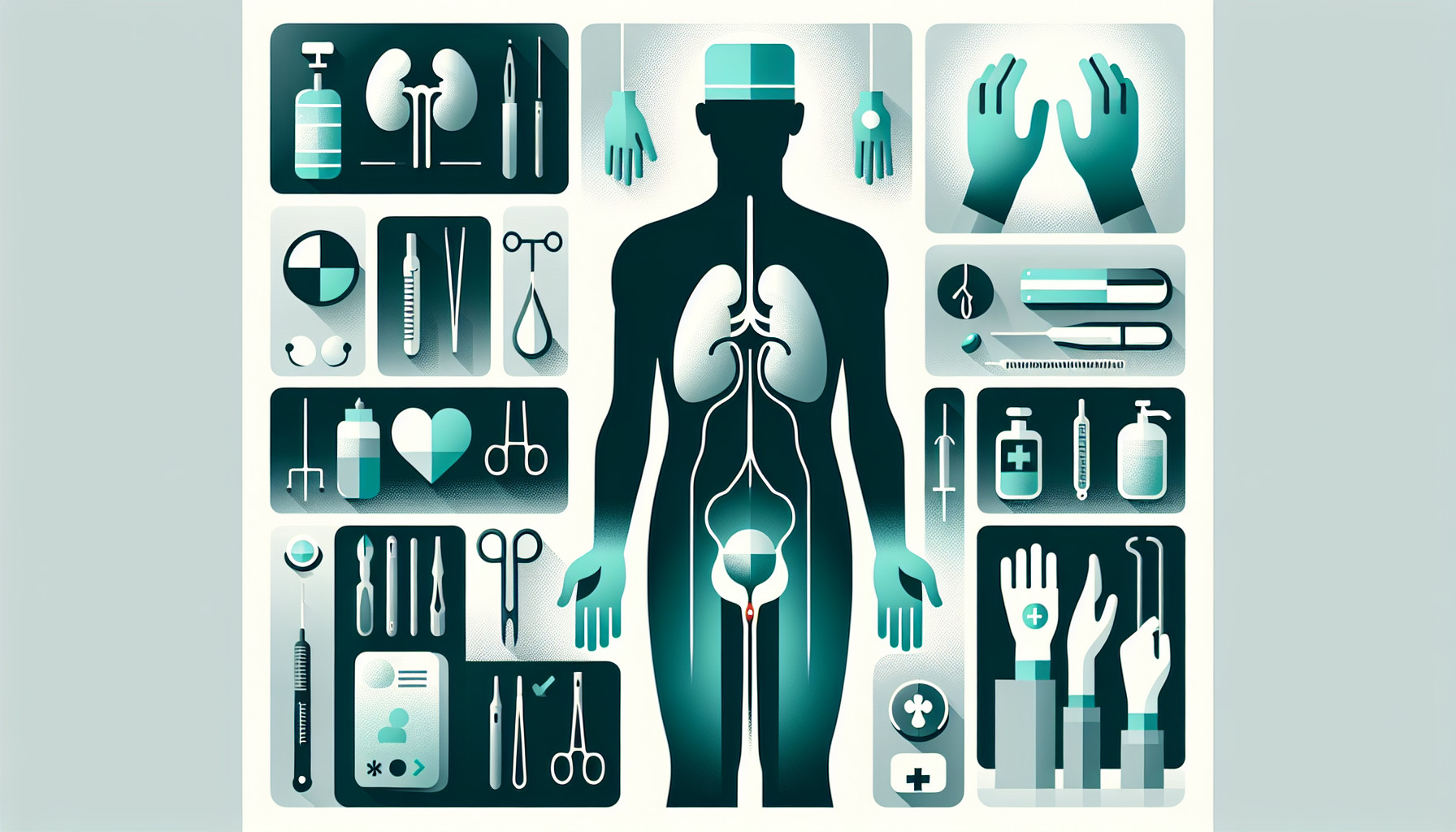Our Summary
This research paper is about a study comparing two types of robot-assisted surgery for partial kidney removal - one through the abdominal cavity (transperitoneal or TP) and the other from the back of the kidney (retroperitoneal or RP). The study aimed to find out which method had better results in terms of complications during and after surgery.
The researchers looked at 22 previous studies involving 5675 patients - some had the TP surgery and others had the RP surgery. They found that patients who underwent the RP surgery had fewer complications overall, lost less blood, needed fewer blood transfusions, and had a shorter hospital stay. The actual surgery time was also shorter for the RP group. However, when it came to more serious complications, the two methods were similar. The need to switch to a more radical surgery or a traditional open surgery was also the same for both groups.
In conclusion, the RP method seems to have some advantages over the TP method. However, the researchers caution that their findings need to be confirmed by more studies.
FAQs
- What are the two types of robot-assisted surgeries for partial kidney removal discussed in this study?
- Which type of surgery - transperitoneal or retroperitoneal - showed better results in terms of complications during and after surgery?
- What further research does the study suggest based on its findings about transperitoneal and retroperitoneal surgeries?
Doctor’s Tip
A helpful tip a doctor might give a patient about nephrectomy is to discuss with their healthcare provider the different surgical approaches available, such as transperitoneal or retroperitoneal, and weigh the potential benefits and risks of each method. It’s important to have a thorough understanding of the procedure and its potential outcomes before making a decision.
Suitable For
Patients who are typically recommended for nephrectomy include those with kidney cancer, kidney stones, severe kidney infections, kidney damage or disease, and kidney donation for transplantation. Nephrectomy may also be recommended for patients with a non-functioning or severely damaged kidney, or for those with a congenital abnormality of the kidney. Additionally, nephrectomy may be recommended as part of treatment for certain types of kidney tumors or to alleviate symptoms such as pain or bleeding.
Timeline
Before Nephrectomy:
- Patient is diagnosed with a condition that requires removal of all or part of a kidney.
- Patient undergoes pre-operative tests and evaluations to determine if they are a candidate for nephrectomy.
- Patient discusses the risks and benefits of the surgery with their healthcare provider and makes a decision to proceed with surgery.
- Patient prepares for surgery by following pre-operative instructions, such as fasting and stopping certain medications.
During Nephrectomy:
- Patient is administered anesthesia and prepped for surgery.
- Surgeon performs the nephrectomy using either the TP or RP method.
- Surgery may involve removing part or all of the kidney, depending on the patient’s condition.
- Surgeon monitors the patient’s vitals and ensures the surgery is successful.
After Nephrectomy:
- Patient is monitored closely in the recovery room for any immediate complications.
- Patient may experience pain, fatigue, and discomfort in the days following surgery.
- Patient is discharged from the hospital once they are stable and able to care for themselves at home.
- Patient follows post-operative instructions, such as taking pain medication, monitoring incision sites for signs of infection, and slowly resuming normal activities.
- Patient attends follow-up appointments with their healthcare provider to monitor their recovery and address any concerns.
What to Ask Your Doctor
- What are the potential risks and complications associated with nephrectomy surgery?
- How will the choice between transperitoneal (TP) and retroperitoneal (RP) nephrectomy methods impact my recovery time and potential complications?
- How experienced are you in performing both TP and RP nephrectomy surgeries?
- What are the potential long-term effects of nephrectomy on kidney function and overall health?
- Will I need any additional treatments or medications following nephrectomy surgery?
- How will my pain be managed during and after the surgery?
- What can I expect in terms of recovery time and returning to normal activities after nephrectomy surgery?
- Will I need any follow-up appointments or tests after the surgery to monitor my kidney function?
- Are there any lifestyle changes I should make to support my kidney health after nephrectomy surgery?
- Are there any alternative treatment options to nephrectomy that I should consider?
Reference
Authors: Shrivastava N, Bhargava P, Sharma G, Choudhary GR. Journal: World J Urol. 2024 Feb 15;42(1):83. doi: 10.1007/s00345-024-04796-7. PMID: 38358565
